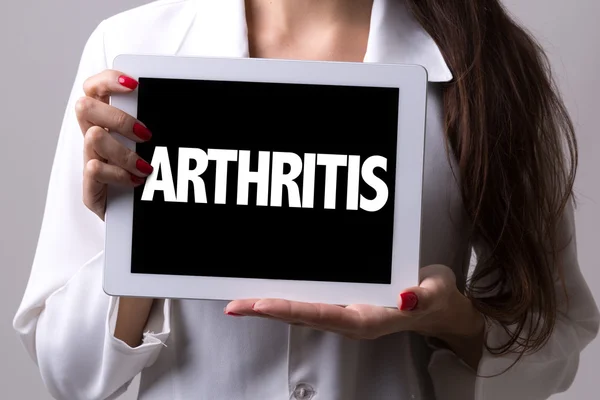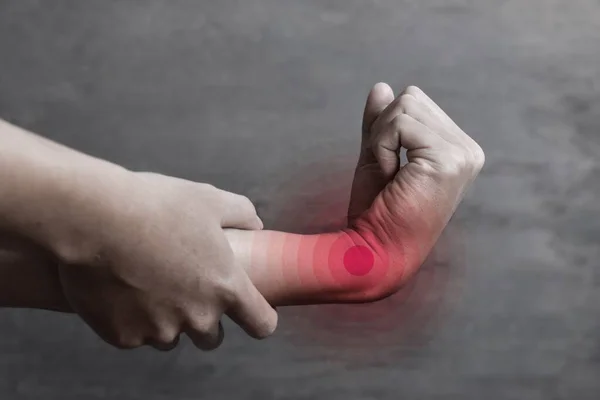Arthritis is often considered a condition that affects older individuals. However, it can strike at any age, and the onset of arthritis in your 30s is not as uncommon as you might think. In fact, early detection of arthritis in your 30s can be crucial for managing the condition effectively. In this comprehensive guide, we will explore the key signs of arthritis striking in your 30s.
Arthritis is a complex family of musculoskeletal disorders, affecting the joints in various ways. It is essential to recognize the signs and symptoms early on, as prompt intervention can significantly improve your quality of life and prevent further joint damage.

Let’s delve into the key signs of arthritis that you should be aware of if you are in your 30s, as early detection can make all the difference.
1. Persistent Joint Pain
One of the most common early signs of arthritis, even in your 30s, is persistent joint pain. This is not your everyday ache or pain; it is chronic and often worsening over time. The pain may be localized in a specific joint or spread across several joints. It’s important to note that arthritis can affect any joint in your body, including your fingers, knees, hips, and even your spine.
The pain may start mildly, making it easy to dismiss as a temporary discomfort. However, if the pain persists for several weeks, especially if it’s impacting your daily activities and sleep, it’s time to seek medical attention. Early intervention can help manage pain and prevent further joint damage.
2. Stiffness, Especially in the Morning
Arthritis often brings with it stiffness in the affected joints, and this stiffness can be particularly pronounced in the morning. It’s not uncommon for people in their 30s to wake up feeling like their joints need some “warming up” before they can move comfortably. This is a classic symptom of early arthritis.
This morning stiffness can last for 30 minutes or even longer. If you find yourself struggling to get out of bed due to joint stiffness, it’s a sign that arthritis could be the culprit. Don’t ignore it, as early treatment can help manage this stiffness effectively.
3. Reduced Range of Motion
Another telltale sign of arthritis, even in your 30s, is a reduced range of motion in your joints. You might notice that you can’t bend your knees or elbows as far as you used to, or that your fingers can’t make the same movements they once did.
This loss of flexibility and range of motion can be subtle at first, but it tends to progress over time. Ignoring this change can lead to further joint damage and limitations in your daily life.
4. Joint Swelling and Redness
Joint swelling and redness are symptoms that can be quite alarming and indicative of inflammation. While joint swelling might be more noticeable, joint redness is often a sign of increased blood flow and inflammation in the affected area.
The swelling may come and go initially, making it easy to dismiss as a minor issue. However, if it becomes a recurring problem, or if the affected joints feel warm to the touch, it’s essential to consult a healthcare professional. Identifying the underlying cause early can prevent further damage to the joint.
5. Fatigue and General Malaise
Feeling unusually tired and experiencing a sense of general malaise can also be associated with early onset arthritis. Arthritis is an autoimmune condition, and the body’s immune system attacking the joints can lead to fatigue and a feeling of unwellness.
Read Related Also: Top 5 Strength Training Routines for Men Seeking Weight Loss
While fatigue can be a symptom of many conditions, if it’s combined with other joint-related symptoms mentioned above, it’s worth discussing with a healthcare provider. Early detection and management of arthritis can help alleviate the fatigue and improve your overall well-being.
The Importance of Early Detection
The early detection of arthritis in your 30s is pivotal for effectively managing the condition. If you notice any of these key signs in your life, don’t hesitate to seek medical advice. A healthcare professional can conduct a thorough evaluation, which may include physical examinations, blood tests, and imaging studies like X-rays or MRI scans to confirm the diagnosis.
If arthritis is diagnosed, your healthcare provider can develop a tailored treatment plan to manage your symptoms and potentially slow down the progression of the disease. Treatment options may include lifestyle changes, physical therapy, medication, or, in some cases, surgery.
Common Types of Arthritis in Your 30s

Understanding the specific type of arthritis you may be dealing with is essential, as it can guide your treatment plan and help you make informed decisions about your health. In your 30s, you are more likely to encounter the following types of arthritis:
- Rheumatoid Arthritis (RA): This is an autoimmune disease that can affect people of any age. It often presents with joint pain, stiffness, and swelling. RA is a progressive condition, so early intervention is crucial to prevent joint damage.
- Ankylosing Spondylitis: This type of arthritis primarily affects the spine and can cause severe back pain and stiffness. It typically starts in early adulthood.
- Psoriatic Arthritis: If you have psoriasis, you may be at risk for psoriatic arthritis. It can affect the joints and cause symptoms like pain and swelling.
- Osteoarthritis: While more common in older adults, osteoarthritis can also affect younger individuals, especially if they have a history of joint injuries.
- Gout: Gout is a form of inflammatory arthritis that often affects the big toe. It can be excruciatingly painful and typically strikes men in their 30s and 40s.
Understanding the specific type of arthritis you have is essential for creating a targeted treatment plan. Consult with your healthcare provider to determine the type and severity of your arthritis, and together, you can take the necessary steps to manage the condition effectively.
Lifestyle Changes for Managing Arthritis in Your 30s
In addition to medical treatment, there are several lifestyle changes that can help you manage arthritis effectively, especially if you’re in your 30s. Here are some key recommendations:
- Maintain a Healthy Weight: Excess weight can put additional stress on your joints. Losing weight, if necessary, can alleviate joint pain and slow down the progression of arthritis.
- Stay Active: Regular exercise can help maintain joint flexibility and strength. Low-impact activities like swimming, cycling, and yoga can be particularly beneficial.
- Balanced Diet: A diet rich in anti-inflammatory foods like fruits, vegetables, and fatty fish can help reduce inflammation and support overall joint health.
- Manage Stress: Stress can exacerbate arthritis symptoms. Practice stress-reduction techniques like mindfulness, meditation, or deep breathing exercises.
- Get Adequate Sleep: Quality sleep is crucial for managing pain and inflammation. Ensure you get enough restful sleep each night.
- Medication Compliance: If your healthcare provider prescribes medication, be consistent with your treatment plan. Medications can help control inflammation and pain.
- Physical Therapy: Consider working with a physical therapist who can provide exercises and techniques to improve joint function.
When to See a Healthcare Provider

If you suspect that you may have arthritis or experience any of the key signs of arthritis striking in your 30s, it’s essential to seek medical attention promptly. Early detection and intervention can make a significant difference in managing the condition and preserving your joint health. Here are some instances when you should consult a healthcare provider:
- Persistent or worsening joint pain: If your joint pain is chronic and interfering with your daily life, consult a healthcare provider.
- Morning stiffness: If you consistently wake up with stiff and painful joints, especially if this lasts for 30 minutes or more, seek medical advice.
- Reduced range of motion: If you notice that you can’t move your joints as freely as before, this is a sign to discuss with a healthcare provider.
- Joint swelling and redness: If your joints become swollen and exhibit redness, it’s time for a medical evaluation.
- Fatigue and unexplained malaise: If you experience unusual tiredness, especially alongside other joint-related symptoms, consult a healthcare provider.
Remember, the sooner arthritis is diagnosed, the better your chances of effectively managing the condition and maintaining your quality of life.
Conclusion
Arthritis does not discriminate based on age. It can strike in your 30s, and early detection is the key to managing the condition effectively. The key signs of arthritis striking in your 30s include persistent joint pain, morning stiffness, reduced range of motion, joint swelling and redness, and fatigue. If you experience any of these symptoms, do not delay seeking medical attention.
Arthritis can take various forms, and understanding the specific type is essential for tailored treatment. In your 30s, you may encounter rheumatoid arthritis, ankylosing spondylitis, psoriatic arthritis, osteoarthritis, or gout. Each type may require a different approach to management.
In addition to medical treatment, making lifestyle changes like maintaining a healthy weight, staying active, and eating an anti-inflammatory diet can significantly improve your quality of life.
Remember, you are not alone in this journey. Consult with a healthcare provider who can guide you in managing your arthritis and help you regain control of your life. Early detection matters and it can make a world of difference in your long-term well-being.







2 comments
Comments are closed.